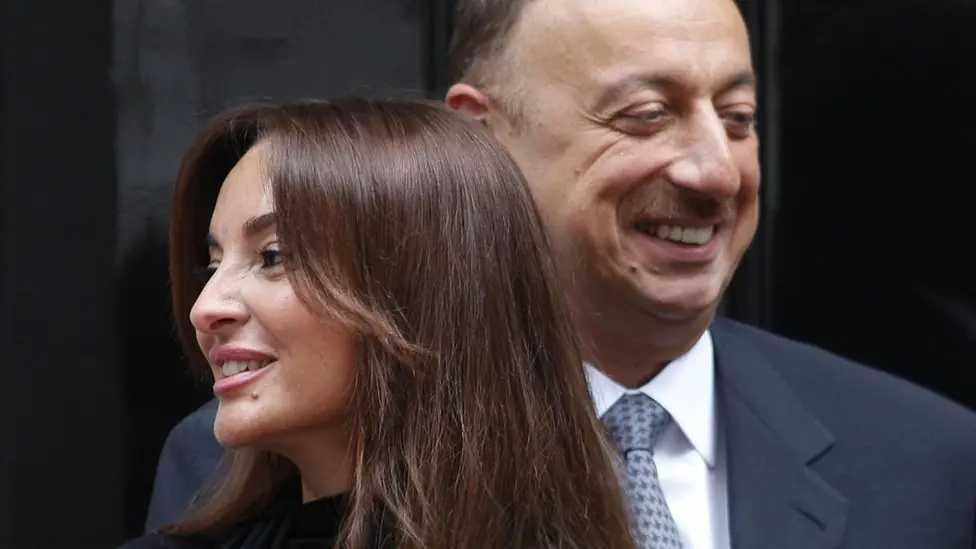On Wednesday, a Tbilisi court again left teacher and activist Nino Datashvili in pre-trial detention. Criminally charged in June for resisting court bailiffs while supporting detained protesters, she faces up to seven years in prison and remains in custody despite deteriorated spinal condition.
That same day, in the same court, the trial of arm wrestler Khatia Vibliani was held. Just days earlier, she had beaten a 14-year-old boy in the street. If convicted, Vibliani could face a maximum of two years in prison — significantly less than what Datashvili faces.
Unlike Datashvili, the court did not consider the politically inactive Vibliani a threat and released her on bail pending trial — despite the victim’s family expressing concern that, since she lives nearby, they do not feel safe with her at liberty.
And this is just one example: in 2024, the Batumi court released a dance instructor on bail, without pre-trial detention, after he repeatedly assaulted a 12-year-old during a dance session he had been hired to conduct. Three years earlier, the Telavi court released former Georgian Dream MP Zurab Zviadauri on bail — he had been accused of premeditated murder.
Every single newsletter I’ve written since joining OC Media has revolved around the abnormal: irrational, unsettling, almost dystopian stories that Georgia’s recent democratic backsliding has made a part of our everyday life.
It’s hard to pick a single story that best captures the intensity of the ongoing developments — there are simply too many. But the task becomes a bit easier when we look at a specific institution to illustrate the scale of repression. Few things demonstrate it better than Georgia’s legal system.
The political instrumentalisation of law enforcement and the courts in Georgia is hardly surprising. Both domestic and international critics have been warning about this problem for years.
Accordingly, what began against the backdrop of the recent waves of anti-government protests was hardly unexpected. Yet the sheer intensity of the process has been laid bare even more starkly than what we already knew.
Additional clarity has come from comparing these cases with others involving those affiliated with the authorities or individuals with no opposition background.
Almost everyone detained by police during the anti-government protests since November has already been sentenced. Among them are 29-year-old Archil Museliantsi, who was given four years in prison for allegedly causing ₾534 ($200) worth of damage to a CCTV camera; 19 demonstrators sentenced to 2–2.5 years on charges of group violence, even though none of the police officers brought to court as witnesses were able to identify them as attackers; and media founder Mzia Amaghlobeli, sentenced to two years for slapping a police officer after a heated exchange.
Beyond the controversy over the lack of evidence and the proportionality of the verdicts, all these cases share a common pattern: judges repeatedly kept the accused in pre-trial detention, citing the risk of reoffending. The same argument was used in the case of 50-year-old Amaghlobeli, whose already poor eyesight deteriorated so severely in prison that, according to her lawyer, she can now only distinguish light from dark in her left eye.
However, don’t assume that judges are always concerned about the risk of repeated offences in protest-related cases.
For example, two men who, in December, first assaulted a passenger at a Tbilisi metro station and later verbally confronted anti-government protesters nearby, were released on bail shortly after their detention and remained free until their verdicts. They were later sentenced to one year and nine months and one and a half years, respectively.
Other attackers of government opponents have been even luckier. No one has been held accountable for the 8 September assault on protesters at the ruling party’s campaign office. Police briefly detained two people but later released them and stopped the investigation, citing the content of the victims’ statements and their alleged lack of cooperation with the investigative authorities.
Yet there’s another case from the same period where the investigation is still ongoing: that of 23 years-old activist Megi Diasamidze, criminally prosecuted for leaving graffiti on the campaign banner of the ruling party’s secretary general and Tbilisi Mayor Kakha Kaladze. She was ultimately released on bail pending trial but could face up to five years in prison once the case concludes.
While Megi awaits her verdict, the unknown assailants who ambushed and violently attacked government critics during this year’s and past demonstrations — at protest sites, on the streets, or near their homes — live peacefully. Despite repeated assurances from the Interior Ministry, most cases remain unresolved.
Not to mention this still leaves out the police officers responsible for brutalising protesters, with reports of beating, humiliation and threats of sexual assault. At this point, even raising the question of holding them accountable seems almost absurd.
‘A woman can no longer walk due to the prosecution’s baseless demands! Her condition worsened so much in detention that she can’t move — what harm could an investigation, which is already completed, possibly suffer if Nino Datashvili were free to care for her health?!’ asked Datashvili’s lawyer, Tamar Gabodze, after her client was once again kept in detention.
It’s a vital question: after all, what harm could Datashvili’s temporary freedom cause? Could it pose a greater risk to society, the Georgian state, or its future than the current state of the Georgian judiciary?
The answer might seem simple, but not in the reality we currently live in. After all, Georgia is now a country where an activist who leaves graffiti on the mayor’s campaign poster can face a longer prison sentence than a violent assailant. In this context, even the most straightforward cases become difficult to assess within the bounds of reason and logic.






